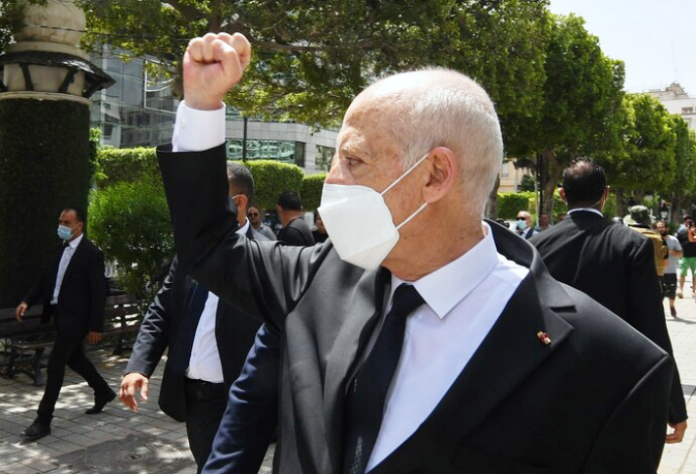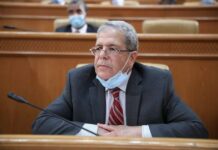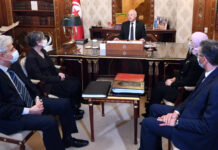After a month of anticipating the steps of the President of the Republic, Kais Saied, and waiting for a series of new and fateful decisions that will change the political landscape in the country, Saied decided to extend the exceptional measures taken pursuant to Presidential Order No. 80 of 2021, related to suspending the powers of the Assembly of the Representatives of the People and lifting the parliamentary immunity of all its members until further notice. So the political vacuum continues in the absence of a clear road map, which leads to interpretations and speculations about the goals and objectives of these decisions.
We recall that the head of state himself assumed the executive authority on the night of July 25, 2021, until his appointment as the head of government, which prompted several political parties to warn against Saied’s unilateral rule, stressing that the extension of the exceptional measures is a step towards dictatorship.
In this context, constitutional law professor Jawhar ben Mubarak said in a previous statement to jdd tunisie, “Today, fog is invading most of the political scene. He appoints governors and directors and dismisses whomever he wants, adding, “Tunisia is down” until further notice.
Al-Qalibi: The presidential system will lead to the rule of the executive authority
Professor of constitutional law, Salsabil Al-Qalibi, called not to adhere to the presidential system, saying, “To those who are obsessed with the presidential system, let go of Rahu Mosh Afar; (it’s not for the interest); for all,” stressing that with the presidential system, power can be disrupted.
Al-Qalibi indicated in a post she wrote on her Facebook page on Tuesday, August 24, 2021, that the presidential system does not enable the President of the Republic to present legislative initiatives due to the absence of a parliamentary majority to support him, on the one hand, but on the other hand, the President of the Republic can disrupt work. Parliamentary and refuses to stamp the laws ratified. Accordingly, Al-Qalibi indicated that “there is no executive authority capable of reforms, and no parliament capable of legislating.”
She added that the countries that chose the presidential system quickly deviated to authoritarian regimes, including Tunisia, according to the 1959 constitution, as she put it.
The Amal Party calls for the establishment of a presidential system
The “Amal” party called for changing the shape of the political system in the country, to become a presidential one, by organizing a popular referendum.
In a radio interview on August 9, 2021, the head of the Amal Party Najib al-Shabi said, “It is better to go towards a popular referendum on the options crystallized by the elites, calling for the consolidation of the presidential system because of its advantages and in view of the political arena in which there are no political parties in the correct sense. On the other hand, there is a hybrid parliament, so it is better to go to the presidential system, which will ensure the stability of the government.
Kais Saied has always expressed his desire to change the current political system. We recall that Saied likened the current Tunisian constitution to “alleged prophecy and divinity.” He considered the current system a parliamentary and non-presidential system, stressing that the 2014 constitution was inappropriate and inappropriate. June 21, 2021.
Saied suggested that the problem before the 2011 revolution was not in the constitutional text, but rather in the absence of political pluralism, explaining that after the constitution was amended in 1976, the system became parliamentary or similar to the parliamentary system.
Article 143 of the Constitution stipulates that the President of the Republic or one-third of the members of the Assembly of the Representatives of the People have the right to initiate a proposal to amend the Constitution, and the initiative of the President of the Republic has priority in that.
Rifi-JDD











